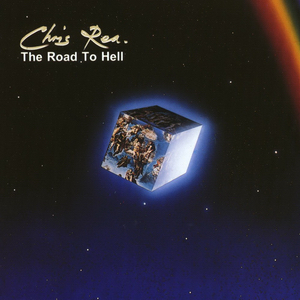The Road to Hell
| The Road to Hell | ||||
|---|---|---|---|---|
 |
||||
| Studio album by Chris Rea | ||||
| Released | 1989 | |||
| Recorded | Miraval Studios, France | |||
| Genre | Blues rock, soft rock, pop rock | |||
| Length | 50:53 | |||
| Label | WEA, Atco, Magnet, Geffen | |||
| Producer | Jon Kelly, Chris Rea | |||
| Chris Rea chronology | ||||
|
||||
| Professional ratings | |
|---|---|
| Review scores | |
| Source | Rating |
| Allmusic | |
The Road to Hell is the tenth studio album by Chris Rea. It was released in 1989 and is one of Rea's most famous albums. The second part of the two-part title track, "The Road to Hell (Pt. 2)", is also one of Rea's most famous songs. The song "Texas" has been played through the years on Classic Rock/AOR radio stations in Texas, and is sometimes played as background music before Texas Rangers baseball games at Rangers Ballpark in Arlington. Another track, "Daytona", is about the Ferrari 365 GTB/4 "Daytona", in which he sings about the car metaphorically, with the engine and tyre noise from the car ringing out toward the end of the song. Also, the song "Tell Me There's a Heaven" was used in a 1991 public information film for the NSPCC.
The eponymous title track was written about the A63, the principal road way out of Hull, which travels west until the M62. Chris Rea originally composed a melody about the A63, called as this is the Road to Hull, which he then changed to Road to Hell, upon his entry.
The album cover features art by the English commercial artist, Adrian Chesterman, who was also responsible for creating cover art for, amongst others, Motörhead's 1979 Bomber album.
All songs by Chris Rea.
(The 1989 US Geffen CD issue also includes the 1988 re-recording of "Let's Dance" slotted between tracks 8 and 9 listed above.)
*sales figures based on certification alone
^shipments figures based on certification alone
...
Wikipedia
